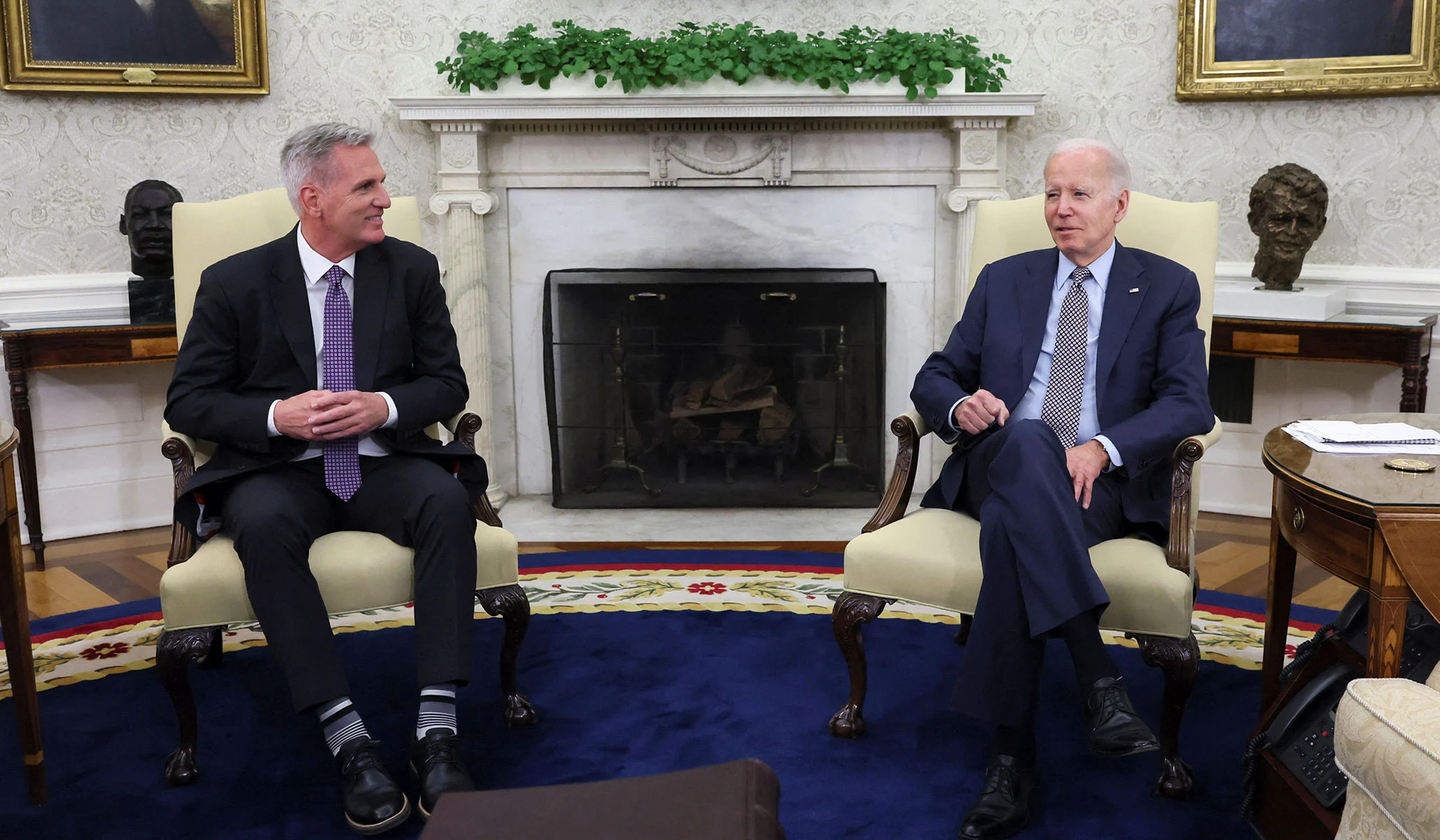After the recent debt-ceiling negotiations, which resulted in a bipartisan agreement and prevented a default, some are questioning whether Washington is truly working again. Despite media narratives that portrayed Republicans as “terrorists” and “hostage-takers,” Speaker McCarthy was able to strike a deal with President Biden ahead of schedule that passed both chambers of Congress with a comfortable majority. However, the deal did little to affect the long-term trajectory of the debt.
While there was some fire-breathing from backbenchers in both parties, neither McCarthy nor Biden engaged in much demonization of the other side. Instead, they used hard-nosed language that would have been typical of politics in previous decades. McCarthy secured a victory by passing a Republican debt-ceiling bill in April that forced Biden to the negotiating table, where he was able to secure a handful of concessions. Biden was able to say he was responsibly paying America’s debts and got a bipartisan deal to do so.
The process worked in the sense that default was avoided and ordinary legislation was passed by both chambers of Congress and signed into law by the president. Both parties gave a little, and not much changed. However, if more drastic changes were desired, a bigger majority should have been won by both sides.
In a more cynical sense, the process also worked because politicians avoided making any hard decisions that could have been unpopular. Both parties promised they would not touch entitlements at all, which is the primary driver of America’s debt problem. As long as politicians refuse to reform entitlements, the problem will remain.
One important sense in which this process did not work was the Senate’s exclusion from the negotiations. The negotiations were primarily between House Republicans and the White House, even though any bill that the House passed would have to go through the Senate first before reaching the president’s desk. The Senate was acting as little more than a rubber stamp for Biden, which is not how the constitutional order is supposed to work.
The legislative negotiations should have been primarily between McCarthy and Senate Majority Leader Chuck Schumer. Spending and borrowing are constitutional powers of Congress, and the Senate should have been involved in those discussions. The White House would certainly have been involved, but the Senate was almost entirely frozen out of these negotiations.
This likely led to the perverse spectacle of a group of progressive senators calling on Biden to pretend that the 14th Amendment means something it doesn’t mean to ignore the legislation being debated and declare the debt limit unconstitutional. It was perverse because a group of legislators was calling on the executive to unconstitutionally take power away from them. This was a cry for attention by people who should have been participants in the process, not commentators on it.
The legislature is supposed to be a political body that generates ideas. It’s not supposed to figure out what the president wants and fall in line behind him. It’s supposed to be decentralized, with solutions emerging from the bottom up, often in ways that are not planned in advance. McCarthy’s messy ascension to the speakership wasn’t such a bad thing because it was a rare vote in Congress where the outcome was not known in advance. The House is still nowhere near as decentralized as it could be, and Senate Democrats remain content to run the chamber from the leadership office.
Whether “Washington working” means passing routine legislation on time or following the Constitution’s design for deliberative government with separation of powers, the recent debt-ceiling negotiations showed that politicians successfully negotiated with each other. However, they did so while treating the Senate as a rubber stamp for the president, not a chamber of Congress with its own prerogatives and interests.

